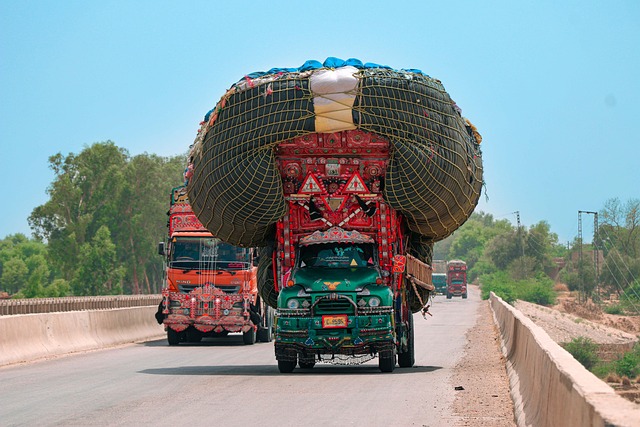New trucking businesses should prioritize comprehensive trucking insurance to protect against risks. The best coverage includes startup fleet coverage with cargo insurance, liability coverage, and physical damage insurance. Tailored insurance plans offer cost-effective solutions, considering fleet size, vehicle types, and routes, ensuring new fleets are adequately protected while managing cash flow.
Understanding the right coverage types is crucial for the success of any new trucking business. This guide provides essential insights into evaluating and securing the best protection for your operation. We explore key components of comprehensive trucking insurance, cost-effective tailored plans for startups, and navigating critical liability and physical damage coverage options. By understanding these aspects, new fleet owners can ensure their investment is protected while keeping costs manageable. Discover expert advice on cargo insurance for startups and gain a competitive edge in the industry.
Evaluating Essential Coverage Needs for New Trucking Businesses

When a new trucking business enters the market, evaluating essential coverage needs is crucial to mitigate risks and ensure smooth operations. The best coverage for new trucking businesses goes beyond the basic requirements and focuses on comprehensive trucking insurance that protects against various liabilities. Startup fleet coverage should encompass both cargo insurance and liability coverage to safeguard against potential losses during transportation.
Tailored insurance plans that consider the unique characteristics of the fleet, such as vehicle types and operating regions, are ideal. Affordable trucking policies can be designed to balance protection with cost-effectiveness, enabling new businesses to manage cash flow while ensuring their assets and employees are protected. Physical damage insurance is an essential component of these tailored plans, safeguarding against unforeseen events that could lead to significant financial losses for a young fleet.
Comprehensive Trucking Insurance: A Deep Dive into Key Components

For new trucking businesses, securing the right comprehensive trucking insurance is paramount to protect against financial risks and ensure smooth operations. The best coverage for startups should encompass a range of key components designed to mitigate potential losses across various aspects of their fleet and business activities. Among essential policies, cargo insurance safeguards against damage or loss during transit, while liability coverage protects against claims arising from accidents or incidents involving the fleet.
Physical damage insurance is another critical element, covering repairs or replacements for vehicles involved in accidents or damaged by specific perils like fire, theft, or severe weather. Tailored insurance plans that offer customizable options allow startups to align their coverage with specific needs, securing affordable trucking policies without sacrificing essential protections. By carefully evaluating these components, new trucking businesses can navigate the roads ahead with increased confidence and peace of mind.
Tailored Insurance Plans for Startup Fleets: Cost-Effective Solutions

New trucking businesses often face a daunting task when it comes to understanding and acquiring the right insurance coverage. One of the most effective strategies for startups is to opt for tailored insurance plans specifically designed for their fleet. These plans offer cost-effective solutions, catering to the unique needs of new operations while ensuring comprehensive protection. By focusing on key areas like liability coverage, physical damage insurance, and cargo insurance, these tailored policies provide a robust safety net for fledgling trucking businesses.
Tailored insurance plans allow operators to choose specific coverages based on their fleet size, vehicle types, and intended routes. This customized approach not only saves money but also ensures that the business is adequately protected against potential risks. For instance, startups can opt for comprehensive trucking insurance that includes liability coverage for any damage or injuries caused during operations, as well as physical damage insurance to protect their vehicles from accidents or natural disasters. Additionally, cargo insurance ensures that valuable goods remain secured and insured during transit.
Navigating Liability and Physical Damage Insurance for New Fleet Owners

Navigating Liability and Physical Damage Insurance is a crucial step for new fleet owners in the trucking industry. As startup fleets begin operations, ensuring adequate coverage becomes essential to mitigate risks associated with on-the-road incidents. Best coverage for new trucking businesses involves comprehensive trucking insurance that includes liability coverage and physical damage insurance.
Liability coverage protects against claims related to accidents or damages caused to third parties, including property damage or injuries. Physical damage insurance, on the other hand, covers the cost of repairing or replacing vehicles involved in accidents. Tailored insurance plans that include these elements can offer new trucking businesses affordable protection while they establish their operations. Cargo insurance for startups is also a consideration, as it safeguards against losses incurred during transit, providing an additional layer of security for valuable cargo.
For new trucking business owners, navigating insurance options can seem daunting. However, by understanding the essential coverage types and tailoring their policies to specific needs, operators can ensure a secure start. Comprehensive trucking insurance offers crucial protection against various risks, while startup fleet coverage focuses on cost-effective solutions without compromising quality. Remember, liability coverage and physical damage insurance are paramount for new fleets, providing peace of mind and safeguarding against potential losses. By choosing the best coverage options, including cargo insurance for startups, new operators can confidently navigate the roads ahead.
